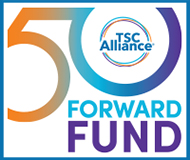Newly published research shows the feasibility of finding blood-based methods to detect kidney problems in individuals with tuberous sclerosis complex (TSC). Kidney issues in TSC are significant because they can be serious and even life-threatening if they lead, for example, to loss of kidney function or internal bleeding. Specific blood-based biomarkers could pave the way for improved screening and management of kidney angiomyolipomas and cysts, ultimately enhancing healthcare and outcomes.
The Need for Better Detection Methods
Currently, the standard way to check for kidney angiomyolipomas and cysts involves imaging techniques like magnetic resonance imaging (MRI), computed tomography (CT), and ultrasound. While MRI is the most accurate, these methods can be expensive, and some people with TSC may require invasive procedures like biopsies for a definitive diagnosis. This situation creates a need for simpler, cost-effective blood tests that can indicate the presence of kidney angiomyolipomas or cysts before more expensive, time-consuming, and invasive procedures are necessary.
Study Population and Methodology
In this study, researchers received blood samples from 283 individuals with TSC who had contributed blood and medical data to the TSC Alliance Biosample Repository and Natural History Database. Blood samples from these individuals were divided into two groups: those with kidney angiomyolipomas or cysts (232 samples) and those without (51 samples). Most individuals with kidney issues had mutations in the TSC2 gene, which is consistent with findings in other studies.
Key Findings on Blood Biomarkers
The researchers used a technique called global untargeted metabolomics to analyze the blood samples. This method allowed them to screen more than 24,000 different chemical features in blood to see if any could serve as potential biomarkers for kidney angiomyolipomas and cysts. They discovered seven highly sensitive chemical features, including one called octanoic acid, which were elevated in the blood samples from individuals with kidney angiomyolipomas or cysts.
Potential Future Implications for Healthcare
The findings underscore the need for ongoing research in this area to further validate these biomarkers and develop practical testing methods for clinical use. These data are from only one set of blood samples, so it is important to reproduce the study in a different set of samples before relying on them for clinical decision making. The identification of blood-based biomarkers is significant because it could lead to the development of a simple blood test that doctors can use to screen for kidney angiomyolipomas and cysts in people with TSC. If successful, this would allow for earlier detection and monitoring of these conditions, potentially reducing the negative impact on health.
Senior authors:
Gina Lee and Cholsoon Jang
School of Medicine, University of California Irvine, Irvine, CA, USA
Help the TSC Alliance accelerate TSC research by donating to the 50 Forward Fund!
